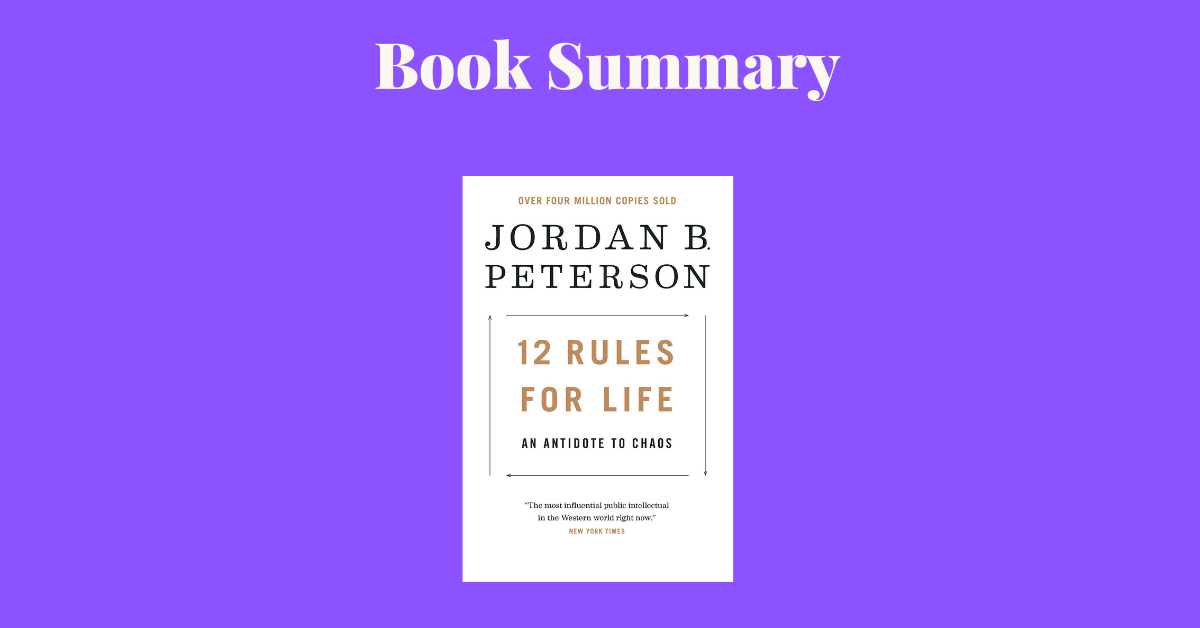
Rule #4 Summary: You’ll know you’re successfully eliminating unhelpful comparison when… Taking stock of circumstances and discovering possibilities for success or failure.Paying better attention to the world around us and.Peterson offers several strategies to help overcome constant comparison, including: “Comparison becomes problematic when it becomes a way to repeatedly put one’s self down in the fashion of the ‘cliché of nihilism,’ where there will always be people better than you.” – Jordan Peterson Social media is ripe for opportunities to engage in unhealthy comparison.
#Free download 12 rules for life audiobook full
It takes the singular accomplishments or achievements of others and measures them against our shortfalls without the proper measuring stick of a full and complete context. The problem? As Peterson points out, comparison distorts and destructs. Rule #4: Compare yourself to who you were yesterday, not to who someone else is today.įrom the time we are very young, we begin looking to our peers or competitors in order to determine our own standards for success and failure. “It’s a good thing, not a selfish thing to choose people who are good for you.” – Jordan Peterson Rule #3 Summary: Whether you are a twelve-year-old or a ninety-year-old… “Sometimes, when people have a low opinion of their own worth – or, perhaps, when they refuse responsibility for their lives – they choose a new acquaintance, of precisely the type who proved troublesome in the past.” – Jordan PetersonĪ good framework of friendship has incredible potential to create and sustain improvement for individuals as well as society. With regard to people who consistently pick bad friends, Peterson writes… Pay attention to the people you call your friends. In short, good friends will be the iron that sharpens our iron and makes us a better version of ourselves. Good friends will challenge, encourage, support, and even criticize us when necessary. Having good friends is much more than just having people with whom we get to do fun things. In Chapter 3 – using a painful anecdote from his own life – Peterson discusses the incredible power of friendships for good or evil in our lives. Rule #3: Make friends with people who want the best for you. Why would you think it acceptable to do anything less for yourself?” – Jordan Peterson “You must help a child become a virtuous, responsible, awake being, capable of full reciprocity – able to take care of himself and others, and to thrive while doing so. You are, therefore, morally obliged to take care of yourself.” Jordan Peterson You have some vital role to play in the unfolding destiny of the world. You are important to other people as much to yourself.

And as much as 50% of medication given to individuals with chronic disease is not taken as prescribed.Īnd medicine is only one example of the way we should be properly caring for ourselves.Īs human beings, we can be self-critical to a fault. We would be present and available to care for the animal’s needs.īut when it comes to our own needs, how attentive are we? Year after year, studies continue to show that as much as 20 or 30% of medical prescriptions are never filled. If called upon to care for a sick animal, for example, most of us would carefully follow the protocol laid out for us. Most of us are far better at helping others than we are at helping ourselves. In chapter two of Peterson’s book, he explains that this injunction is as much a call to care for our neighbors as it is a call to care for ourselves. Whether or not we identify as Christian, most of us are familiar with the Bible’s golden rule to “Love your neighbor as yourself.” (Mark 12:31 NIV) Rule #2: Treat yourself like you are someone you are responsible for helping. Speak your mind … Walk tall and gaze forthrightly ahead.” – Jordan Peterson

And since character is everything, good posture is a good place to start. Peterson believes people with good character often have good posture. Good posture can actually help us trick ourselves into the courage we want to have.

It means deciding to voluntarily transform the chaos of potential into the realities of habitable order … It means willingly undertaking the sacrifices necessary to generate a productive and meaningful reality.” – Jordan Peterson “To stand up straight with your shoulders back is to accept the terrible responsibility of life, with eyes wide open. Psychology has long recognized that good posture helps support good state of mind, and Peterson’s thoughts on this matter are consistent with that idea.

This competent stance – head up, shoulders back – isn’t meant to be combative, but is designed to help us feel and therefore be courageous. It’s the opposite of a defensive posture. To stand up straight with your shoulders back is to open yourself up to the world. Rule #1: Stand up straight with your shoulders back.


 0 kommentar(er)
0 kommentar(er)
